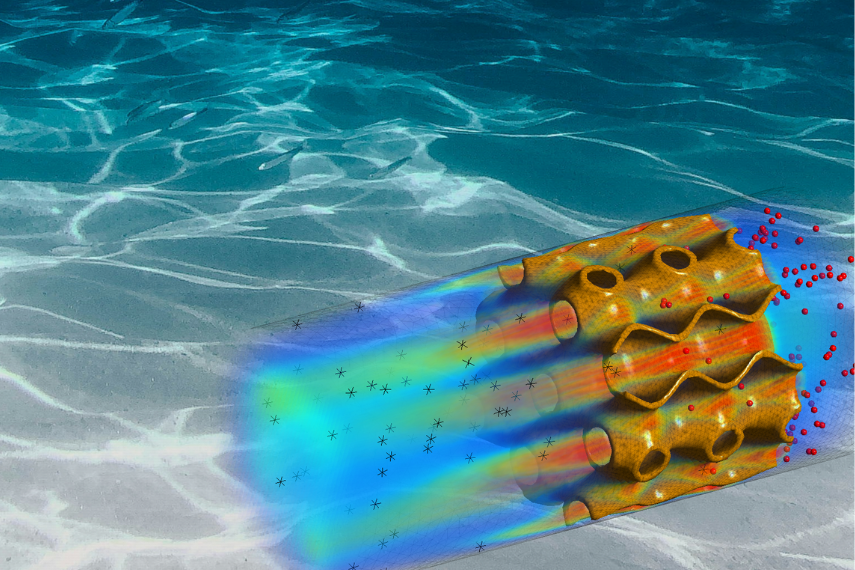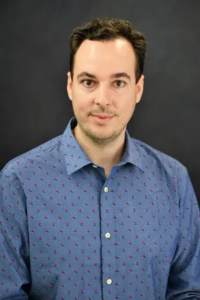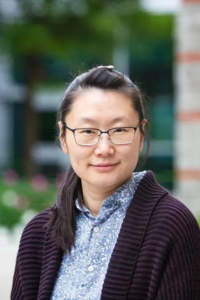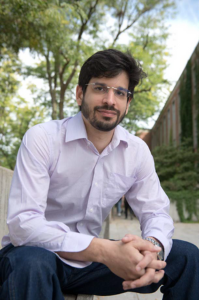The Flow of Progress: New Approach to Safer Water

At the University of Guelph, Dr. Emily Chiang and Dr. Rafael Santos in the School of Engineering are pioneering the future of clean water with their innovative research in water disinfection. Leveraging the advanced capabilities of Computational Fluid Dynamics (CFD) modeling, a type of computer simulation used to predict how liquids and gases will move and interact with surfaces, their team has developed a new, low-cost method to disinfect water, making it safer for consumption, irrigation and even in food processing.
Technology for Cleaner Water
The latest research by Chiang and Santos introduces a novel method of using metallic structures to kill harmful microorganisms in water. This technique utilizes intricately structured metal foams (porous structures made of metal that look similar to a sponge.) that offer a larger surface area to come into contact with and neutralize bacteria more effectively than ever before. Metals, especially those made from copper, have been known for their antibacterial properties but were limited by their surface area. Now, with the help of 3D printing technologies, the team at U of G can create these metal structures efficiently and cost-effectively, enhancing their practical applications.


The key in their research is the design of metal foams, which are crafted to optimize contact area with water and reduce energy consumption. By guiding water through these structured foams, the system efficiently neutralizes harmful microorganisms. Computational Fluid Dynamics (CFD) is utilized to model and improve the foam's structure, enhancing its surface area for maximum microbial interaction while ensuring water flows with minimal resistance. This is necessary for maintaining a low-pressure drop across high volumes of water and thus minimizing the energy required for operation.
"The effectiveness of our design means that it can be scaled up to meet the needs of larger populations or scaled down for use in individual homes," said Santos. This work is a collaborative effort, with contributions from international researchers including PhD student Leonardo Melo, and OMAFRA.

A Step Towards a Sustainable Future
This research aims to provide a simple and yet effective system to disinfect water.
"Our hope is to see this technology applied not just in water treatment facilities but also in smaller, community-based systems," said Chiang.
This could mean safer water in remote communities and developing countries, where traditional water treatment facilities are not feasible. By turning contaminated water sources into safe, clean water, the innovations at UofG are setting the stage for a future where clean water is accessible to everyone, everywhere.
This story was written by Mehran Bozorgi as part of the Science Communicators: Research @ CEPS initiative. Mehran is a PhD candidate in the School of Engineering under Dr.s Syeda Humaira Tasnim and Shohel Mahmud. His research focus is on the development of solar-assisted cooling systems to achieve thermal comfort conditions in buildings in different climate conditions.
Funding Acknowledgement: This study was financially supported by the Ontario Agri-Food Innovation Alliance and the Food from Thought program, through the Highly Qualified Personnel Scholarship Program for L.M.
References: L. G. T. C. Melo, F. D. de Menezes, J. A. P. da Costa, J. V. P. Alves, Y. W. Chiang, and R. M. Santos, “Optimizing Metal‐Surface Water Disinfection: CFD Study on Microorganism Collision Against a Triply Periodic Minimal Surface,” Adv. Sustain. Syst., Mar. 2024, doi: 10.1002/adsu.202300663.